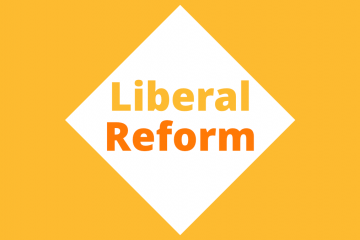At 7:00pm on the 10th of June 2021, our Building Communities working group met via Zoom. Our group consists of housing experts from across the Liberal Democrats, local councillors, as well as some enthusiastic Liberal Reform members. The group is a diverse mix of people from many localities and backgrounds that have one thing in common: a desire to tackle the housing crisis.
The working group is currently in the process of putting together a policy motion on housing based on our campaign priorities, that will be submitted for debate at Lib Dem Autumn Conference. You will be able to read this and add your name very soon!
Below you can find a summary of the key points made in the meeting, as well as some direct quotes from group members in response to the questions that were discussed:
http://midequalitygroup.co.uk/events/2022-12-28/ Key Points
- The Tory reforms are not good as they would override local communities, however they show that an unashamedly pro housing stance can work well messaging wise.
- What works locally is getting buy-in from the community, and promoting the positives of the development before building even starts.
- Central government targets work allow the conversation to shift from whether we have housing at all to how that housing is delivered.
- We need to bring more land into use, and we can do that by penalising holders for not using it via LVT
- Putting the necessary infrastructure, landscaping etc in place before the housing would sweeten the deal and reduce objections.
- We need to combine the delivery of housing with our desire to tackle climate change.
- We should consider reform of the green belt in some areas, but we should also be mindful of the political consequences of doing this.
- In every age & demographic more people are in favour of new housing than anti. We should be reaching out to these people, not just talking to the vocal minority of opponents.
- We need to be bolder about making the positive case for new housing
- Wrap it in a positive vision: As an opportunity for the next generation, creating jobs and sustaining communities.
San Luis Obispo Agenda
1) What are your thoughts on the Tory plans?
“Regardless of the policy content of the plans, the Conservative party is striking a good note messaging wise which is saying they’re unashamedly pro housing.”
“The plan seems to remove restrictions on developers to build, but also remove much local authority or community ability to have any say over what happens.”
“Not really persuaded that these plans will actually result in more houses. They’ll continue to build at much the same rate, but just with less oversight.”
“There’s too much of an emphasis on home ownership. We should also consider shared ownership and social ownership models.”
“It would take local authority control away and give developers a free reign. Building needs to be done in association with local communities as to what they actually need and the type of housing and where it goes.”
“It will likely achieve more building but it’s a very blunt tool to use to do it.”
“Their plans have encouraged some strong opposition, people just see it as the government overriding their local communities by diktat. Not surprising that many local councillors are opposed to it.”
2) Are there any successful examples of housing delivery from your area that we could learn from?
“I’m also a chair of a working group looking at development around a new HS2 station, around 2 £billion worth of investment. What we’ve tried to do there is we’ve had consultations every step of the way, every local pressure group interest group has been invited into meetings, as well as neighbouring councils of different political colours. So that we’re getting a real buy-in from everybody, and when we do that successfully it is much, much easier. The vast majority of people will be much more on board because we’ve worked with them from day one.”
“What’s worked is managing the messaging right first. Having a pre-application discussion or sitting down with a developer working out what the benefits are, and then starting to sell the benefits upfront to the wider community before they’ve even thought about a planning application.”
“One case we had was what was an area that desperately wanted a new park and football pitches. So we sold the development on the basis that we’re going to get you a new park and by the way, there’s some houses with it. No objections! So it can be done.”
“I know I’ve chaired a planning committee for about 15 years and I spend a lot of my time arguing with developers. Not about the principle of development, but about getting it right for the area and all of that comes from local inputs.”
“We do need to guide communities because if they lack experience working on a neighbourhood plan it’s very, very difficult, particularly for smaller authorities. And so we need to make it easier for communities to access tech policy and planning guidance.”
3) What do you think about the following policies?
3.1 Housing targets imposed by central government:
“One way housing supply has increased is via a tougher message to local authorities and central government, around a quantity of homes that need to be built. Top down targets do work because they give certainty. But we need to find some mechanism that reintroduces targets in a meaningful way, but yet still gives freedom to local planning authorities to do what’s right for local communities, to get the right homes in the right places and the right quality, alongside infrastructure.”
“Central targets have been very helpful to me in my area. If we can shift the conversation from whether we have housing to how the housing is delivered, and it’s a more constructive conversation that can take place within the community, as long as the community faculty have some sight over the delivery of the housing.”
“We’ve got to be able to tell communities that our area is going to be taking X number of houses. However there will always be resistance to this.”
3.2 Land Value Taxation:
“Well, I think if we want more housing and don’t want to use the Green Belt, then we have to have ways of bringing land back into use, and the most obvious way of doing that that’s been talked about for years and not implemented is land value taxation.”
“We really ought to be promoting that as a way of making land available instead of it just being in land banks, as speculative developments. There’s an awful lot of land available, particularly in the west Midlands, brownfields sites etc. This could be brought back into use by actually taxing people for not using it.”
“We should be pointing out that there is no such thing as a free market in land, land is necessarily monopolistic. We are those who rent to pay ever increasing rents, ever increasing taxes. And the people who bought at the right time are getting all of that taxes back in the form of capital gains. We have campaigns to stop investing in oil companies or tobacco companies because they are unethical, and it’s also unethical to take money from people who can’t afford housing to bolster your bottom line.”
4) How do we ensure that the necessary infrastructure to support new homes is provided?
“There is a point where I can understand people’s opposition to new houses. If they call up the GP sanitary and they can never get an appointment, or if they cool try and put their kids to school and there’s no places within that catchment area. We could be ensuring that the area not only gets the new houses but also extra education places and the extra health care facilities, something that people can actually see. This would sweeten the deal, and I think it’s something that could be messaged in a really clear way.”
“(In Eastleigh), we’re putting all the landscaping and major road infrastructure in before any home is completed. We’re planting over a thousand trees for any homes that are completed. Those kind of things that can make a big difference in changing the way people think about housing development.”
“There’s this idea that people don’t like housing because they didn’t like the lack of infrastructure, and I get that that’s a factor, but they just didn’t like housing, right?
“We need housing to be part of a positive vision that we can sound credible when we are promoting. And I think too many people’s experience of development is that it’s poor quality, so that positive vision has to include environmental standards, infrastructure, community building.”
5) How do we deliver new homes whilst tackling climate change?
“We need to combine housing with our desire to tackle climate change, and for housing to be zero carbon housing. Let’s make sure that we’re building housing that uses ground source heat pumps, or has solar panels built into it. Let’s make sure that we have facilities for car charging.”
“It’s all very well saying let’s build efficient houses, but if those efficient houses are miles out from where most people need to be, then you somehow need to find a way of travelling into the city, for example. So that people can walk and buses can move freely, and people aren’t given a 25% tax in time on their working week before they can see their families.”
“Because of climate change, we’re going to need to retrofit millions of houses and that’s going to use resources that would have otherwise been used to build new ones”.
6) Should we be building on the Green Belt?
“I do think that it’s a real sticking point for us as a policy. Building on the green belt or like reworking the green belt as an idea so that it actually works better, because currently greenbelts aren’t actually that good for the environment. Most greenbelts are just a big patch of grass with no biodiversity whatsoever.”
“You can be creative with it, like bringing more green spaces to cities in, in the forms of parks etc. Laura Gordon in Sheffield Hallam a while back campaigned for “green fingers”, the idea that you do bring Greenbelt in and build out at the same time. There are more creative ways of doing things rather than just saying don’t build on the Greenbelt ever.”
“The green belt was designed pretty explicitly for limiting urban sprawl, basically limiting the size of cities and large towns. It’s not really an environmental designation at all, there are 101 other national and international environmental designations that do the job better.
“I think we could say that we would build on the green belt, but I think we would need to actually do it quite explicitly and not surreptitiously. So we could, for example, say we will take the 5% poorest quality green belt. We’ll build a lot of houses on it and we’ll expand the green belt by 10% in other areas. Which means we can deliver a net environmental benefit and more housing.”
“I mean, there are greenbelts that desperately need to go like Oxford, because it’s totally constrained growth and has simply resulted in growth occurring 30 miles away instead, so people use motorways like a bridge to get from one at one built up area to another.However in some places like here in Nottingham, Greenbelt is absolutely vital to stop Nottingham and Derby coalescing.”
“I think speaking as a councillor, I just don’t think it’s realistic to expect our councillors to commit political suicide by ignoring an essential chunk of our voter base. Um, so I think we just need to be aware that that’s a reality we’ve got to design policy.”
7) What are some of the reasons people oppose new housing?
“Because they are never asked! If the community has been involved in developments from the beginning then they can take ownership for it. And if they don’t take ownership for it of course, it’s a natural thing to object to them. So we should be involving the community in plans before we actually start building.”
“The whole process is distorted by the fact that only opponents to housing are engaging in the process. So we go around thinking everyone’s anti housing as a party, but we’re missing this huge chunk of voters that are pro housing.”
“People don’t feel they have a role to play in the planning process.”
“Some feel that they don’t want to betray their local community by saying they were pro something when everyone else has got a sign up saying no.”
“In many of the areas we’re strong in such as leafy suburbs of Sheffield, people have moved there because they like the pretty scenery. So people who live there are protective of the view from their window or walk, and they don’t want to lose that.”
“We do have to activate people who are in favour of doing the right development to the right place and the right volume.”
“Actually the idea that people are anti-housing is one of the fundamental mistakes that political parties make. In every single age & demographic, more people are in favour of new housing.
Is there even a point in persuading anti housing people? They are anti housing and they will always be anti housing. We should stop talking to them!”
8) In terms of messaging, how should we sell new housing to potential voters?
“When we talk about our voters and our supporters, we’re talking about a relatively small number of people who were in homes that are anti-housing, and we’re not speaking as a party to the millions of people who don’t own houses.”
“The party isn’t brave enough about the discussions that needed to be had. We have to go say to people, actually housing is a good thing and we’re going to have to do it. And I’m really sorry about that, but it is a good thing for society. I think it’s a stance that possibly the party is not ready to take, but actually the Tories have kind of got to sadly.”
“You can say we desperately need homes. We must recognise that we’ve got a whole generation who couldn’t buy their first home in their twenties. And as a party to kind of savvy thing to do, it seems to me would be to lose a few NIMBY votes, but pick up a ton of YIMBY votes by being a bit more aware of those kind of demographics.”
“I think we need to be able to wrap pro-housing messages in a more positive vision. Currently the way housing is put to people basically is, do you want your community changed? Do you want to lose your view? Do you want more congestion? The answer is normally no. But if more housing is part of a vision to create opportunity for the next generation, that will help when we’re challenged on it.”
“We may not need to win over all the NIMBYs, but we do need to have something to say in these conversations. So are you opposed to this new housing? No, we’re not. We’re pro housing because we’re creating houses for young people. We’re creating jobs for young people. We’re creating a community. We need to be able to wrap it in lots of good news. We won’t win the NIMBYs, but we’ve got something to say to them.”
“We need to be selling it as, do you want your local shop to still be here? Because unless we make sure they’re going to have custom, they’re not going to. Do you want your local school to survive? Because unless we have another generation of kids coming in, then that school will go.”
“The only way the school in my area is surviving at the moment is by shipping in pupils from well outside the catchment area. And so unless we actually have young people, younger families moving in, then we will lose the resources and the facilities that we have. And that is I think a positive message to give to people. Yes we’re building homes, not just for the next generation, but also to ensure that what we already have can survive and can flourish.”
“What I’m concerned about is making sure that we don’t come over as being concrete over the green belt, because that is absolutely the wrong message.”
“We have a national housing crisis and this is the bit the Tories have got right, they’ve at least accepted that there is a housing crisis and that we need more homes. I would hope we would do better than them by getting the right mix of homes, not just push home ownership.”
“Designing housing space is an essential investment in the future. It shouldn’t be considered as a cost.“
“It’s a bit like saying that the reason we tackle climate change is because climate change needs to be tackled. (Tackling the housing crisis) is the right thing to do.”
9) Is there anything else we should consider?
“There are a hell of a lot of issues around delivery, like skill shortages, labour, the funding streams.”
“Social housing is under a lot of pressure in terms of fire safety and sustainability, so we’re being asked on one hand to deliver more housing and at the same time we’re having to reign back because of the financial implications.”
“We could have prefabricated modules that you can assemble on site, which limits the time spent on site. You could actually really expand the prefabricated elements of housing, structural, insulated panels, and things of that kind.”
“Something I’ve in parts of Europe are modular systems. Every house was sort of different and people could choose their own house. So here’s, here’s the zone of land, which is earmarked for development. There’s 30 different prefab designs, pick one and put it on your plots of land and that sort of thing.”
“A big expansion of a pre-constructed housing industry is needed, I don’t see it as any other way.”
“We should talk about housing as part of a national strategy. We can say that by supporting the economic rebalancing of the UK, you can take some of the pressure off that really high housing demand areas.”
Group Members In Attendance
Fraser Coppin (Chair)
Alan Muhammed
Emily Tester
Julia Wright
Anna Sabine
Cllr Keith House
Henry Compson
Guy Benson
Tom McGrath
David Watts
David Murray
Bryan Simpson
Cllr Jonathan Brown
Jock Coats






